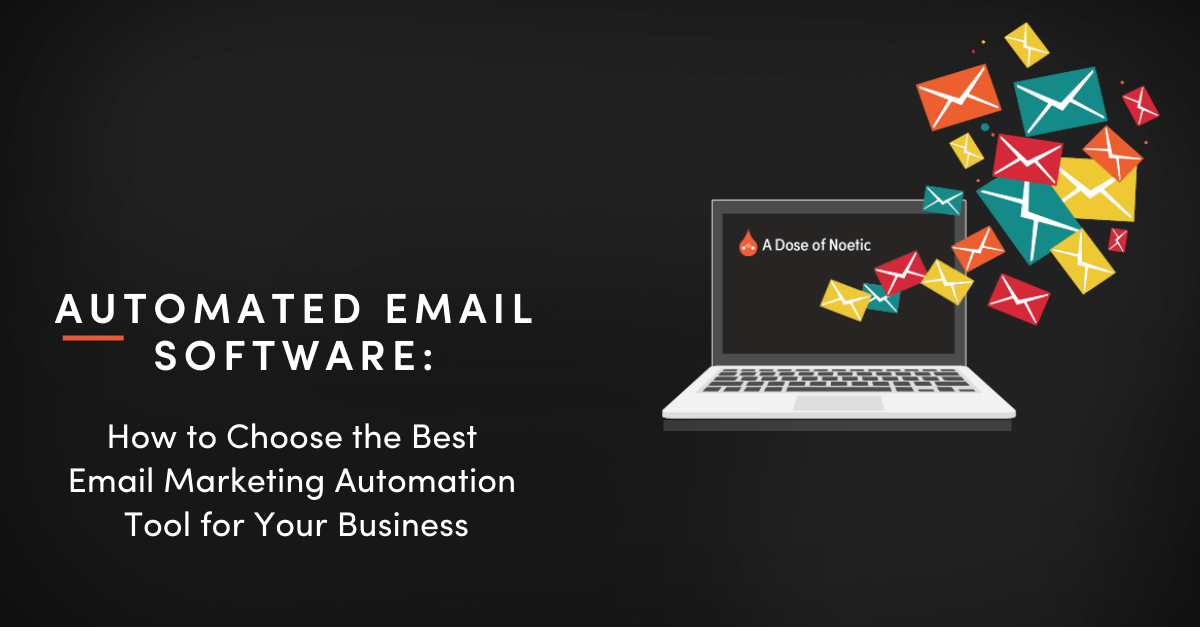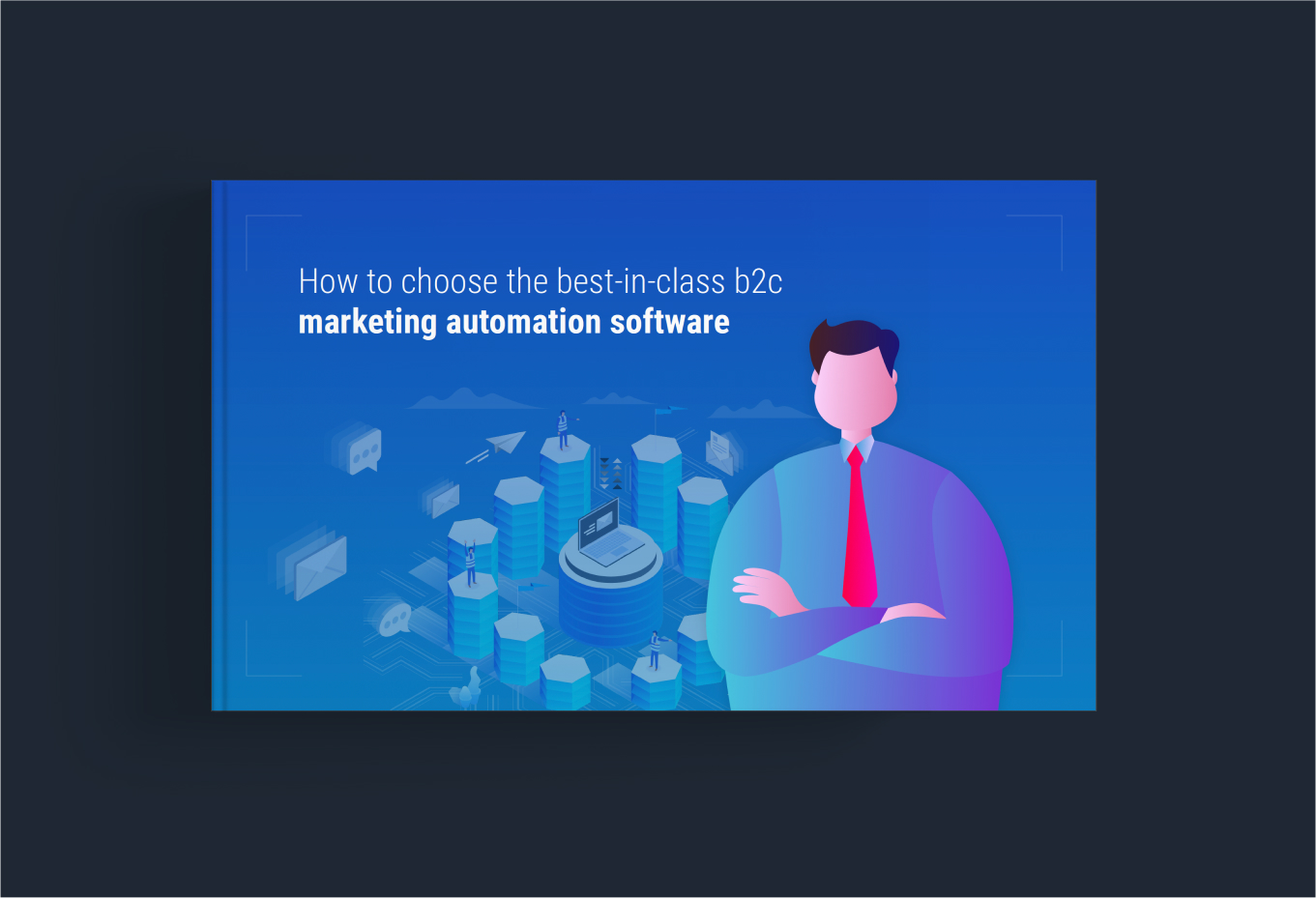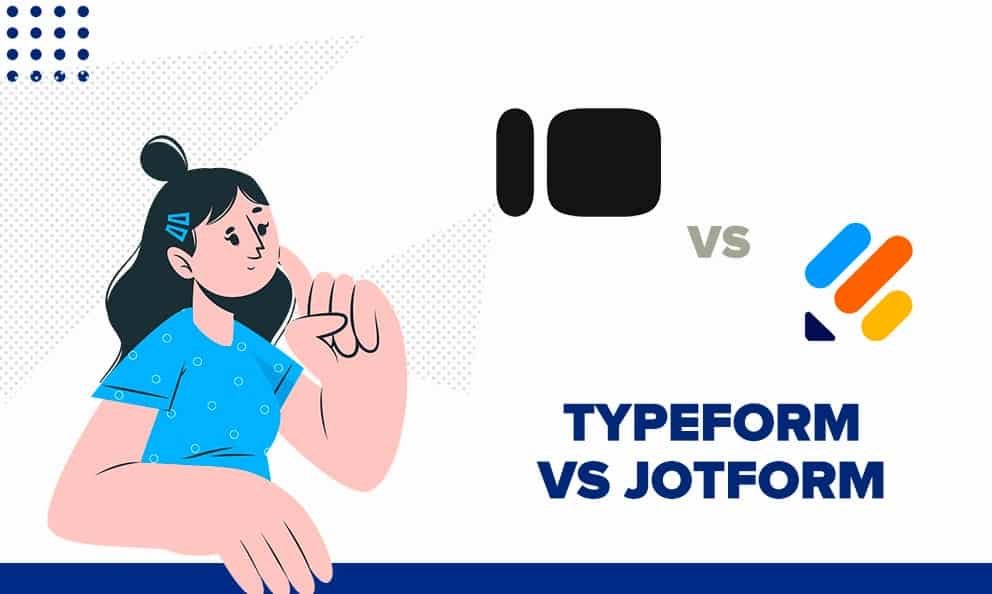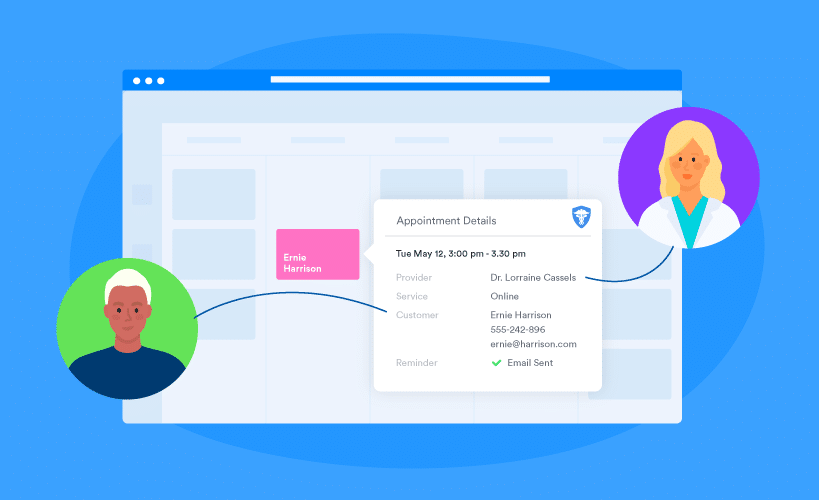Choosing marketing automation software can feel overwhelming. So many options exist.
Marketing automation software can streamline tasks, improve efficiency, and boost campaign effectiveness. But how do you find the right one? Each business has unique needs, and not all software fits every situation. Understanding your goals, budget, and required features is crucial.
This guide will help you navigate the decision-making process. We will cover key factors to consider, from functionality to integration capabilities. By the end, you will feel more confident about making the right choice. Let’s dive in and simplify this important decision together.

Credit: www.noeticmarketer.com
Introduction To Marketing Automation
Marketing automation is a powerful tool for businesses. It helps streamline tasks and improve efficiency. Choosing the right software can be challenging. Understanding the basics of marketing automation is crucial.
What Is Marketing Automation?
Marketing automation uses technology to manage marketing tasks. It automates repetitive processes. Examples include email campaigns, social media posts, and targeted ads. This saves time and ensures consistent communication.
Importance Of Marketing Automation
Marketing automation is vital for businesses. It increases productivity and reduces errors. Automated campaigns reach audiences at the right time. Personalized messages improve customer engagement. Data insights help refine strategies.
Identifying Your Business Needs
Choosing the right marketing automation software can be challenging. The first step is identifying your business needs. This ensures you select a tool that fits your goals and requirements.
Assessing Business Goals
Start by defining your business goals. What do you aim to achieve with marketing automation? Are you looking to generate leads, improve customer engagement, or increase sales? Understanding your goals will help you choose software that supports these objectives.
Consider both short-term and long-term goals. Short-term goals might include immediate campaigns. Long-term goals could involve building customer loyalty. Ensure the software can scale with your business as it grows.
Determining Key Features
Next, determine the key features you need. Do you need email marketing, social media automation, or CRM integration? Make a list of essential features. Prioritize them based on your goals.
Think about ease of use. Will your team find the software user-friendly? A tool with a steep learning curve may slow down your progress. Check if the software offers good customer support. This can be crucial if you encounter issues.
Also, consider integration with other tools you use. The software should work well with your existing systems. This ensures a smooth workflow and better data management.
Budget Considerations
Consider your budget before choosing marketing automation software. Compare costs and features to find the best fit.
Choosing the right marketing automation software can be a game-changer for your business. However, one of the most crucial aspects to consider is your budget. Without careful planning, you might overspend or miss out on essential features. Let’s dive into the key budget considerations.Evaluating Costs
Understanding the costs involved is the first step. Look beyond the initial purchase price. Consider subscription fees, add-ons, and potential hidden costs. Create a list of must-have features. Prioritize these while comparing different software options. This ensures you’re not paying for bells and whistles you don’t need. Talk to other businesses about their experiences. Did they face unexpected costs? Learning from others can save you from costly mistakes.Calculating Roi
Return on Investment (ROI) is critical. How will this software impact your revenue and efficiency? Start by estimating the time saved on repetitive tasks. For instance, if your team spends 10 hours a week on email campaigns, automation can cut that down significantly. Time saved is money earned. Next, measure the increase in leads and conversions. Good automation software should boost your marketing efforts. Compare the cost of the software to these gains to assess its value. Finally, think long-term. Sometimes, the benefits of marketing automation unfold over months. Are you prepared to wait for the ROI to materialize? Choosing the right marketing automation software involves more than just picking the cheapest option. Evaluate costs and calculate ROI carefully. This thoughtful approach will ensure you make a smart investment for your business.
Credit: webengage.com
Key Features To Look For
Choosing the right marketing automation software can be challenging. Understanding key features can help make an informed decision. Below, we explore the essential features you should consider.
Lead Management
Effective lead management is crucial for any marketing strategy. Your software should capture and track leads from various sources. It should also score leads based on their behavior. This helps prioritize the most promising leads. A good system also nurtures leads with automated workflows. Look for features that allow segmentation of leads for targeted marketing.
Email Marketing
Email marketing is a vital part of automation software. Look for tools that offer customizable templates. Personalization options are also important. They make emails more engaging. The software should also provide scheduling features. This ensures emails are sent at the optimal time. Automation for follow-up emails can save time. Ensure the software supports A/B testing to optimize campaigns.
Analytics And Reporting
Analytics and reporting features help measure success. Look for software that provides detailed reports on campaign performance. This includes open rates, click-through rates, and conversions. Real-time analytics can offer immediate insights. Customizable dashboards are useful for tracking key metrics. Ensure the software integrates with other tools for comprehensive data analysis.
Integration Capabilities
Selecting marketing automation software involves assessing integration capabilities. Ensure the software can seamlessly connect with your existing tools, enhancing workflow efficiency. Integration reduces manual effort and streamlines data management across platforms.
Choosing the right marketing automation software is crucial for your business. One of the most important factors to consider is integration capabilities. These capabilities ensure that the software works seamlessly with your existing tools and platforms. Let’s dive into the key areas of integration.Crm Integration
Your marketing automation software should integrate smoothly with your CRM system. This integration allows you to manage customer relationships more effectively. When your CRM and marketing automation tools work together, you can track leads and customer interactions in one place. Imagine you’re running a campaign and want to see how it’s performing. With CRM integration, you can easily pull up detailed reports and insights. This helps you make data-driven decisions quickly. Does your current CRM system support the marketing automation software you’re considering? Check compatibility before making a decision. It will save you time and headaches in the long run.Social Media Integration
Social media is a powerful marketing channel. Your marketing automation software should enable you to schedule, publish, and track posts across various platforms. This makes managing your social media presence much easier. Consider a scenario where you have to post on multiple platforms like Facebook, Twitter, and LinkedIn. With social media integration, you can do this from a single dashboard. This not only saves time but also ensures consistency in your messaging. Do you want to know how your social media campaigns are performing? Integrated analytics can provide you with real-time data. This helps you tweak your strategies for better engagement and reach. Integration capabilities are essential for a seamless marketing experience. They ensure that your tools work together, making your job easier and more efficient. So, take the time to evaluate these features before making your final choice.User Experience
Choosing the right marketing automation software can be challenging. A crucial factor to consider is user experience. This determines how easy and pleasant it is to use the software. Good user experience ensures smooth operations and effective results. Let’s look at two key aspects: ease of use and customer support.
Ease Of Use
Ease of use is vital. The software should have an intuitive interface. Users should find it easy to navigate. Simple, clear instructions help users understand features quickly. Avoid software with a steep learning curve. It should not require extensive training. This saves time and reduces frustration.
Customer Support
Reliable customer support is essential. Users will encounter issues or have questions. The software provider should offer timely and helpful support. Look for 24/7 support options. Consider live chat, phone support, and email assistance. Quality support can make a big difference. It ensures users can resolve issues quickly.
Vendor Reputation
Choosing the right marketing automation software involves many factors. One crucial aspect is the vendor’s reputation. A vendor’s reputation tells you a lot about their reliability, customer service, and product quality. It’s essential to dig deep and understand who you are partnering with.
Researching Vendors
Start by compiling a list of potential vendors. Look for companies with a strong track record in the industry. Check their website for company history and achievements. Pay attention to their client list. Well-known clients can indicate reliability and trustworthiness.
Reading Reviews And Testimonials
Reviews and testimonials offer real insights from actual users. Visit reputable review sites to read user feedback. Focus on recurring themes in the reviews. Are customers satisfied with the software’s performance? How is the customer service?
Testimonials on the vendor’s site can also be helpful. They often highlight successful case studies and satisfied clients. Look for detailed testimonials that mention specific benefits and results. These details can help you gauge the software’s effectiveness.
Trial And Testing
Choosing the right marketing automation software is crucial. One important step is trial and testing. Testing the software helps you understand its features. It ensures the software meets your needs. You can see how well it integrates with your current systems.
Requesting Demos
Requesting demos is a good starting point. Many companies offer free demos. During the demo, ask questions. Focus on features that matter to you. See how the software handles tasks you need. Pay attention to the user interface. It should be easy to navigate. Observe how the software performs in real-time.
Conducting Trial Runs
Conducting trial runs is another key step. Many software providers offer trial periods. Use this time wisely. Test all the features. Simulate your daily tasks. Check the software’s performance. Make sure it fits your workflow. Engage your team in the trial. Get their feedback. This helps in making an informed decision.
Making The Final Decision
Deciding on the right marketing automation software involves evaluating features, pricing, and user-friendliness. Consider your business needs and goals carefully. Make sure to choose a solution that fits your team’s skills and resources.
Choosing the right marketing automation software is a critical decision for your business. It can determine how effectively you engage with your customers and streamline your marketing efforts. Now that you’ve narrowed down your options, it’s time to make the final decision.Comparing Options
Take a close look at your top choices. Create a table to compare their features, pricing, and support services. | Feature | Software A | Software B | Software C | |—————–|——————-|——————-|——————-| | Pricing | $50/month | $70/month | $60/month | | Email Campaigns | Yes | Yes | Yes | | Social Media | Yes | No | Yes | | Support | 24/7 | Business hours | 24/7 | Identify which features are must-haves for your business. For instance, if 24/7 support is crucial, eliminate any options without it. Consider the long-term benefits. Which software can scale with your growing business? Think about how your needs might change in a year or two.Consulting Team Members
Engage your team in the decision-making process. Their input is valuable since they’ll be using the software daily. Schedule a demo session with your team. Let them explore the software and ask questions. This hands-on experience can reveal insights that product descriptions might not cover. Gather feedback from different departments. Your marketing, sales, and IT teams might have different priorities and concerns. This ensures you choose software that meets everyone’s needs. Ask your team what they like and dislike about each option. Their perspectives can help you make a more informed decision. Involve your team in final discussions. This fosters a sense of ownership and ensures a smoother implementation process. Making the final decision on marketing automation software is all about balancing features, cost, and team input. What factors are most important to you? Which option aligns best with your business goals? Take the time to weigh your choices and consult with your team. Your careful consideration now will pay off in the long run.Implementing Your Chosen Software
Implementing your chosen marketing automation software is crucial for achieving your goals. It involves setting up the software, training your team, and monitoring performance. Each step is essential for a smooth transition and effective use of the tool.
Training Your Team
Training your team is a vital step in the implementation process. Ensure everyone understands how to use the software. This can be done through workshops, webinars, and tutorials. Hands-on training sessions are particularly effective. They allow team members to ask questions and get immediate feedback. Provide user manuals and other resources for further learning.
Monitoring Performance
Monitoring performance helps you understand how well the software is working. Track key metrics such as open rates, click-through rates, and conversion rates. Use these insights to make data-driven decisions. Regularly review reports and dashboards provided by the software. This helps identify areas for improvement.
Set specific goals and benchmarks for your campaigns. Compare actual performance against these benchmarks. Make adjustments as needed. Regular monitoring ensures you get the most out of your marketing automation software.

Credit: www.agilecrm.com
Frequently Asked Questions
What Is The Best Software For Marketing Automation?
HubSpot, ActiveCampaign, and Marketo are top choices for marketing automation. They offer comprehensive tools for email marketing, lead nurturing, and analytics.
Where To Start With Marketing Automation?
Start with setting clear goals. Choose a reliable marketing automation platform. Segment your audience. Create personalized content. Monitor and optimize your campaigns.
Which Type Of Crm Is Used For Marketing Automation?
Operational CRM is used for marketing automation. It streamlines marketing tasks, manages campaigns, and helps target the right audience effectively.
How Much Does A Marketing Automation Platform Cost?
Marketing automation platform costs vary widely. They typically range from $200 to $1,500 per month, depending on features and scale.
Conclusion
Choosing the right marketing automation software can boost your business. Focus on your needs. Evaluate features that align with your goals. Consider user-friendly options. Check customer reviews and support services. Keep your budget in mind. Test different tools before deciding.
The right choice will save time and enhance productivity. Your business growth depends on smart decisions. Start your journey today and watch your efforts pay off.





